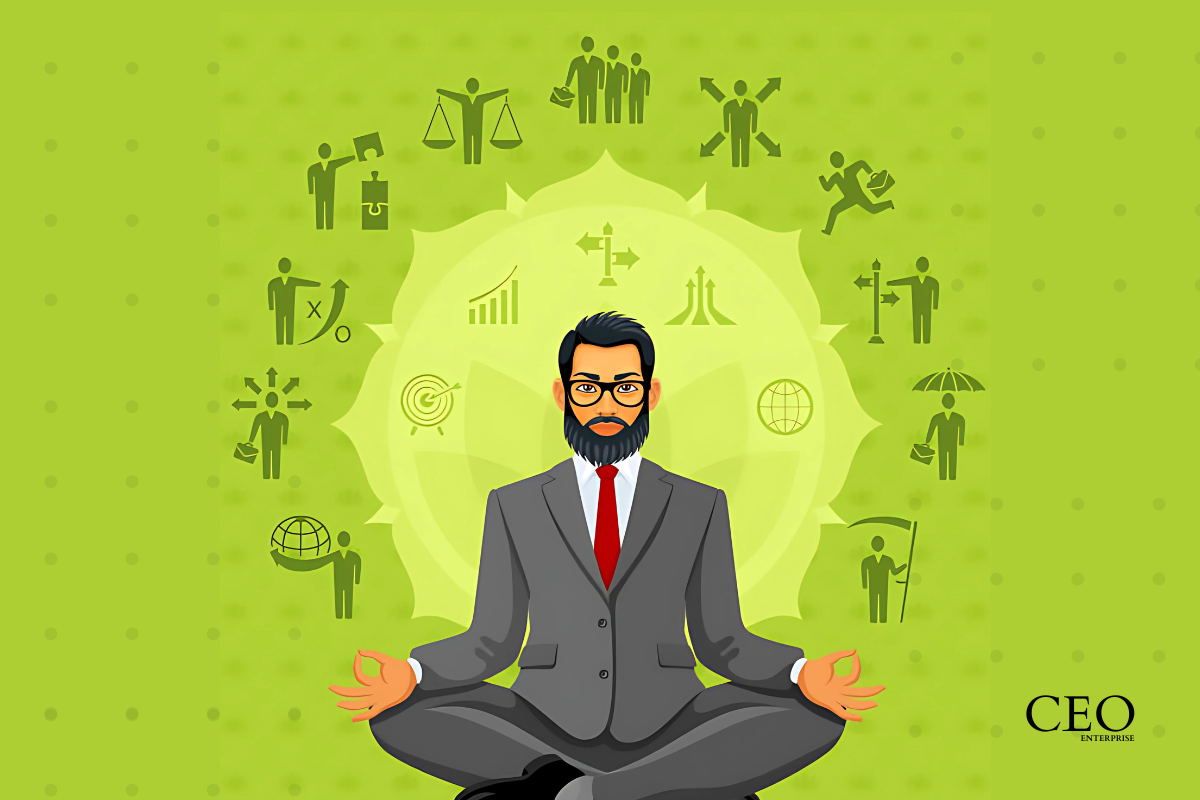In today’s fast-paced and high-pressure environment, leaders often struggle to prioritize their own well-being. Despite growing attention to self-care and resilience since the pandemic, integrating these practices into daily routines remains a significant challenge. According to research, a consistent self-care routine is essential for optimal performance, healthier leadership, and long-term…

In today’s fast-paced and high-pressure environment, leaders often struggle to prioritize their own well-being. Despite growing attention to self-care and resilience since the pandemic, integrating these practices into daily routines remains a significant challenge. According to research, a consistent self-care routine is essential for optimal performance, healthier leadership, and long-term resilience. But for many executives, developing such habits is easier said than done.
During a recent leadership training attended by over 30 education leaders from 21 different countries, not one participant had a regular self-care practice. This trend is echoed across various industries, with leaders often feeling overwhelmed by their professional responsibilities. Personal, cultural, and structural factors contribute to this neglect, ranging from time constraints to societal expectations that discourage prioritizing oneself.
The Impact of Neglecting Self-Care
The daily demands of leadership consume enormous emotional and mental energy. Leaders often face obstacles such as the misconception that focusing on self-care is selfish or indulgent. A common example is a manager who worries more about their team’s health and well-being than their own. These internal and external barriers prevent many from investing in practices that promote their mental and physical health.
If left unaddressed, the lack of self-care can result in burnout, increased stress, and a diminished capacity to lead effectively. So, how can incorporate self-care strategies for Leaders into their lives to foster resilient and sustainable leadership?
Shifting the Mindset Towards Self-Care
Integrating self-care begins with a change in mindset. Leaders must give themselves permission to focus inward and prioritize their health as a vital component of their professional success. This mindset shift helps establish the foundation for implementing practical self-care strategies for leadership.
- Give Yourself Permission to Care for Yourself Many leaders feel guilty or view self-care as an unnecessary luxury. Start by asking yourself, “Why do I find it hard to prioritize my well-being?” Reflect on the cost of neglecting your health in terms of your performance, longevity, and overall happiness.
- Avoid the All-or-Nothing Trap You don’t have to adopt a perfect self-care routine overnight. Begin with small, manageable changes. For instance, incorporate a short walk during lunch or set aside 15 minutes in the morning to meditate. Progress is a dynamic process with ups and downs, but consistency is key.
- Take Inspiration from Colleagues Notice how other leaders successfully set boundaries and prioritize self-care. Borrow ideas that resonate with you and adapt them to fit your lifestyle.
- Prioritize Consistency Over Perfection Identify small adjustments you can implement each week. Over time, these will accumulate into meaningful habits that support your long-term well-being.
Creating a Personal Self-Care Checklist
Now that you’ve set the right mindset, it’s time to craft a personal self-care strategist for leadership. This simple guide focuses on five key areas: body, mind, relationships, choice-making, and personal growth. Regularly evaluating each of these elements can help leaders maintain a balanced and sustainable approach to self-care.
1. Managing Your Body’s Energy Budget
Your physical health significantly impacts your emotional resilience and decision-making capabilities. As a leader, it’s crucial to maintain a balanced energy budget by prioritizing sleep, nutrition, and regular exercise.
- Monitor your energy levels: Reflect on how sleep, diet, and exercise affect your daily functioning.
- Set realistic goals: If you travel often, find ways to incorporate micro-workouts into your routine, such as using a fitness app for quick sessions or opting for stairs over elevators.
2. Strengthening Emotional Health
Emotional regulation and relaxation are critical components of leadership. Use the “ABC” framework to manage strong emotions:
- A — Awareness: Identify the thoughts, feelings, and physical sensations associated with intense emotions.
- B — Build Understanding: Dig deeper into your feelings to gain a more precise understanding of what’s really going on.
- C — Communicate: Once you’ve processed your emotions, think about how to communicate effectively, whether it’s addressing a staff concern or reflecting on your own response.
3. Nurturing Relationships and Collaboration
Leadership is inherently relational. Positive connections with colleagues, family, and peers not only support your well-being but also enhance your effectiveness.
- Role-model collaboration and positivity: Small actions, like greeting team members enthusiastically, can set the tone for a more engaged and connected work environment.
4. Establishing Choice Points
Leaders often feel they have little control over their schedules. However, creating intentional “choice points” can increase autonomy and reduce stress.
- Set boundaries: Determine what support you need and communicate these needs to others. For example, decide which meetings are essential to attend and delegate the rest.
5. Committing to Continuous Growth
Personal development is a lifelong journey. Make time for activities that stimulate your mind and inspire you, whether through reading, attending seminars, or engaging in creative pursuits.
A Sustainable Approach to Self-Care
Implementing a sustainable self-care routine requires intention, patience, and consistency. By addressing your physical health, managing emotions, fostering positive relationships, making empowered choices, and embracing continuous growth, leaders can build a framework for resilience and long-term success. Remember, self-care is not a luxury—it’s an investment in becoming a healthier, more effective leader.
By integrating these strategies, leaders not only enhance own well-being but also set a powerful example for their teams, creating a culture that values both personal and professional growth.
